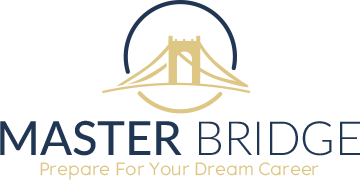
What is the H-1B visa?
It is a temporary visa that employers use to hire immigrants or people living in foreign countries in “specialty occupations” for which there are not enough skilled American workers to fill available jobs. Once approved, your initial H-1B status can be granted for up to three years, and you can renew your status for up to three additional years. The workers must have at least a bachelor’s degree.
How many visas are issued each year?
65,000 H-1B visas are available each year for workers with bachelor’s degrees, and 20,000 more are for those with Master’s degrees or higher. Universities, research organizations and some non-profit organizations are exempt from the cap meaning you can directly get H-1B visa if you choose to work for them after graduation.
How many applicants apply for H-1B each year?
In 2017, 236,000 petitions were filed for H-1B where else almost 170,000 petitions were filed in 2018 in first 5 days of application filling. Therefore, the probability of getting an H-1B has increased to one-half (1/2) from one-third (1/3). This drastic change was observed after a US-government policy which put strict checks on visa applicants and rejects petitions of applicants who have applied more than once.
Here is the detailed analysis of H-1B petitions from different countries and education degree from 2007 to 2017:
Who’s benefiting?

As usual with immigration policy, it’s complicated. More than 4000 companies sponsored workers for H-1B visas in the 2018 fiscal year. Many employers follow the rule specified by USCIS and target a worker with hard-to-find expertise whom they wish to hire to do specialized work because they could not find someone in the United States to do the job. In many cases, H-1B workers have kickstarted their start-ups and develop cutting-edge technology that keeps America competitive.
But the questions arise who’s benefiting despite the strict rules? About 20 companies accounted for 37 percent of approved H-1B petitions, according to an analysis by the fortune.com. Many of the employers are global outsourcing companies like TCS, Infosys, Wipro, etc, from India that supply entry-level workers to retailers, insurance companies and banks. Not all. Among them are also American firms who appear to be using the program to create a pool of cheap labor.
Trump Effect: Buy American, Hire American

According to data analysed from 2015 to 2017 by San Francisco Chronicle, Wipro saw a 52.4% drop in number of visa applications filed by the company over the three-year period while TCS reported a 18.3% decline and Infosys saw 38.1% reduction. Wipro applied for only 5,812 visa applications for engineers to work in the US in 2017, while TCS applied for 13,537 and Infosys filed for 20,587 applications, according to data gathered from US Department of Labour by the US daily. This increases not only the chances of International student enrolled in the US universities to get hired because of their “speciality skills” but also get H-1B visas.
Key Points:
Mostly, companies apply on behalf of the employee for the H-1B petition. But, as a safety precaution, one can make sure the following checkpoints are true before the final submission:
- Do not apply for the petition more than once: Companies, in the past, have taken full advantage of the loophole of multiple applications via consultancies and as a result, USCIS had to come up with a strict policy that applicants would be straight away be rejected if they applied for H-1B petition more than once!
- Please provide an appropriate job description: Recently, a no. of applicants got their H-1B petition rejected just because the job description provided in the petition didn’t match their education degree background. Please double check your offer letter, job description and petition, and discuss it out with the concerned representative of the company if you feel it doesn’t matches with your education degree background!








720p izle
Good post. I am facing many of these issues as well.. Lilly Bard Forrester